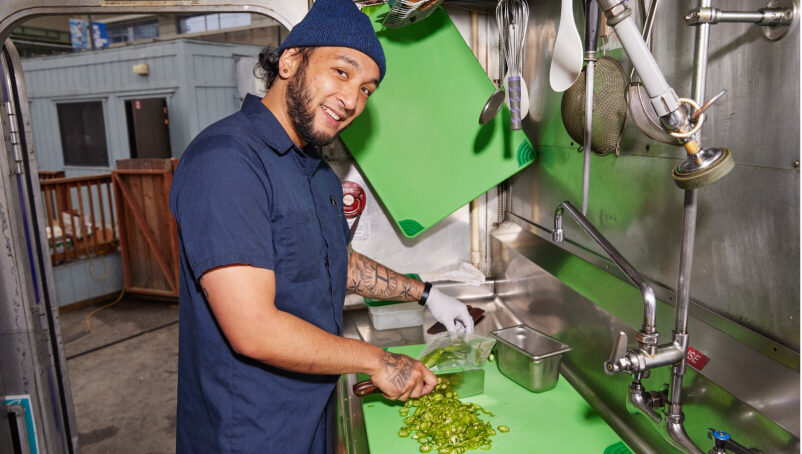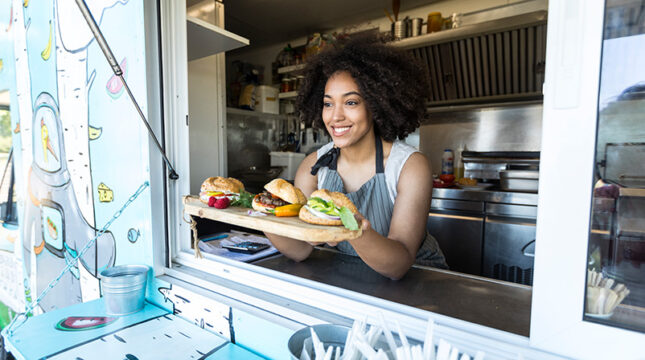Is a food handlers card required in Florida?
All food storage, preparation, display or service employees need a food handler certification. Florida law requires these food handlers to complete a state-approved training program within 60 days of employment.
Most employees at food establishments need an FL food handler certification, even if they do not directly prepare food. This includes servers, hosts, bartenders, and on-site event coordinators.
The Florida food handler certification program exempts food service managers, who must complete a separate certification process and pass a test within 30 days of employment.
These Certified Food Protection Managers act as safe food handling supervisors. All public food service establishments must have a food protection manager. You must have this certification if you are a sole proprietor.
Besides ensuring compliance with state law, employees trained in food safety can help protect your business with the knowledge gained during their safe food handling certification. Florida businesses benefit from having employees trained in proper food handling since it can reduce the risk of foodborne illnesses.
How to get a Florida food handlers card
Employees classified as food handlers must complete a state-approved training course to earn a food handler certificate. Florida food service workers can choose from any online or in-person course on the DBPR’s list of approved food worker training programs.
These approved courses cover topics related to safe food handling, including:
- Professional hygiene
- Causes of foodborne illness
- Identification of hazardous foods
- Preventing cross-contamination
- Controlling harmful bacteria
Florida also requires duty-specific training for some food service workers. For example, employees who directly prepare food must also learn about safe methods for thawing, cooking, cooling and storing food.
In most cases, it will take less than two hours to earn a food handling certificate. Florida food handlers who complete the course in person at their place of employment may have a longer or shorter course, depending on their specific job duties.
There are also many options for short online food handler training programs. Employees become certified food handlers once the course is completed, either online or in person.
Florida food handler training is valid for three years. Food service workers must retake a state-approved training course to renew their certification.
Restaurant workers may be able to use their out-of-state food handler certification in Florida. Many Florida-approved food safety training programs are also permitted in other states. Check the DBPR website for reciprocity information.
Insurance requirements for Florida restaurants, caterers, cafes and food service
Restaurant owners in Florida can help protect against different types of risk with Florida business insurance. Many food service businesses in the state consider these insurance options:
General liability insurance
Florida general liability insurance can provide important protections if your business is held liable for accidents that cause property damage or injuries to someone besides you or an employee.
Food service general liability insurance can offer additional protections for your business. For example, foodborne illness coverage may be able to help if one of your customers gets sick from contaminated food or food prepared incorrectly.
Workers’ compensation insurance
Florida workers’ compensation insurance can help provide important financial coverage for medical bills and lost wages if an employee gets hurt on the job. Most businesses in Florida with four or more employees are required to have workers’ comp insurance.
Commercial property insurance
Commercial property insurance can help protect physical business assets, including commercial buildings, equipment, furniture and inventory. This coverage can help pay for repairs or replacements of your business property after a covered event, such as a fire or burst pipe.
Commercial auto insurance
Commercial auto insurance can help cover costs like medical expenses and property damage if your or an employee gets into an accident while driving a work vehicle.
Florida requires all vehicles to have minimum auto insurance coverage of $10,000 in Personal Injury Protection (PIP) and $10,000 in Property Damage Liability (PDL).
Florida food handlers card verification and reporting
Depending on where they receive their certification, food handlers may or may not receive a physical food handling license. Florida does, however, require approved third-party providers to report any employee training to the DBPR. Employees who complete third-party training will receive an original certification card.
Food service establishments with their own state-approved internal training programs are exempt from the reporting requirement for employee training. However, these establishments still must provide proof of employee training upon request.
It is your responsibility as an employer to keep proof of training of each food service employee on file, including the name of the trained employee, their date of birth, the date the training took place and the approved safety training program used.
How much does a Florida food handlers card cost?
The cost of obtaining a Florida safe food handling certificate varies based on where food handlers receive their training. Typically, employers who offer approved in-house training programs do so at no cost to their employees.
Food service employees who complete a Florida food handler certification online or at a third-party physical location typically pay $10 or less for training.
How NEXT helps support Florida restaurants and food business owners
NEXT is 100% dedicated to small businesses. We provide customized Florida restaurant insurance coverage for small businesses and self-employed individuals.
It only takes about 10 minutes to get a quote, review your coverage options, choose your policies and download a certificate of insurance.
Our team of licensed insurance advisors is standing by to assist you if you have any questions along the way.
Start a free quote with NEXT.






